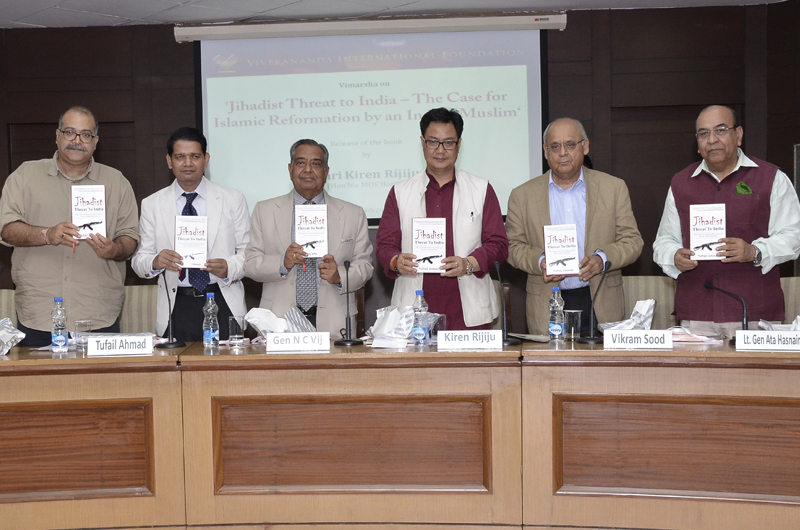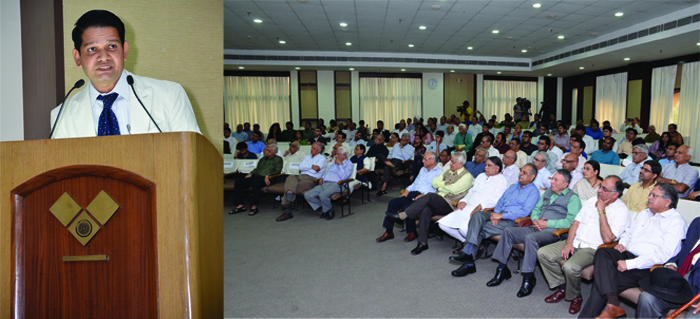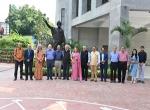As part of its Vimarsha series of public discourses on issues of contemporary national relevance, the VIF on 31 March 2016 organised the release of book ‘Jihadist Threat to India – The Case for Islamic Reformation by an Indian Muslim’ by Tufail Ahmad, followed by a panel discussion. Hon’ble Kiren Rijiju, Union Minister of State for Home Affairs, released the book to a large audience which comprised of several prominent former bureaucrats, diplomats, military veterans, among other intellectuals. The itinerary of the event included: Opening remarks by the Director VIF, release of the book, author’s remarks, panel discussion, Q&A session, and a speech by the Chief Guest.

In his opening remarks, General Vij underlined the timing of the publication could not have been more perfect as it has come in the wake of a series of terrorist strikes across the world including India. While he stressed the phenomenon of Jihad, which has taken many regions across the globe in its sweep, needs to be thoroughly understood, he also underscored how India’s pluralistic traditions, deeply rooted in old civilisational ethos, helped tide over multiple vicissitudes in the past. He spoke glowingly of India’s resilience to stay united as a nation despite fissiparous tendencies which keep showing up from time to time.
Following the Director’s opening remarks, Tufail Ahmad, author, gave a broad understanding of the nature of Jihadist threat India faces. According to him, India faces the twin threat of Pakistan-exported terrorism and the increasing radicalization of local Muslims. While the former can be tackled militarily, it is the later which is really the problematic.

Taking a swipe at Pakistan, the author vicariously told the audience that India remains by far the best country in the world in so far as Muslims are concerned. He however stressed that liberal Islamist views need to be given proper institutionalized support in India. Among other speakers, while Sushant Sareen dwelt on the role of the state in so far as de-radicalization of Muslims is concerned, S. Ata Hasnain’s talk focused on Islam’s reformation. The latter described the current turmoil being witnessed around the Muslim world as some kind of churning, an essential pre-condition to actual reformation which may come about a hundred years later. He argued convincingly that of all countries in the world, India perhaps stands the best chance to lead Islam’s reformation process. Vikram Sood, former Chief R&AW, who has written a forward to the book, led the panelists through an interesting Q&A session with the audience.
The evening’s proceedings concluded with an impressive speech, delivered by Hon’ble Minister Kiren Rijiju. He stressed that while ideological differences in the past remained largely contained, it is the growing inter-connectedness of the world, especially the expanse of technologies, exacerbating the process of radicalization across the world. While reiterating terrorism has no religion, he called upon the intellectuals, clerics and other representatives of the society to which these radicals belong to rein in such elements as they bring a bad name to the whole society. While he said deliberations such as these are helpful in combating radicalization, he also assured the audience that his government is taking all necessary steps in this direction. To end the session, the Director thanked the Minister for sparing his valuable time and the audience for turning up in huge numbers.







